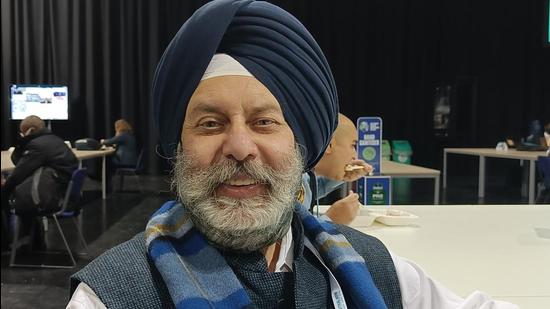‘Hope COP26 will make efforts on adaptation finance’
“Adaptation now has to be mainstreamed. I hope this COP will make some serious efforts on adaptation finance and not just pay the usual lip service,” former climate negotiator and ambassador, Manjeev Singh Puri, said.
Glasgow: There is growing frustration among developing countries due to lack of progress and consensus on issues such as climate finance at the Glasgow climate change conference (COP 26). These countries allege that the developed countries are resisting their obligations under the Paris Agreement, and raising questions around who the donors and beneficiaries of climate finance should be. There is also no multilaterally agreed definition on climate finance.

As pressure mounts at Glasgow, former climate negotiator and ambassador, Manjeev Singh Puri spoke about his assessment of the chances of a result and his own expectations from the climate conference.
Edited excerpts:
Is there any progress on major elements like climate finance, markets, loss and damage? We have only two days to go.
On climate finance, there is a draft decision; it doesn’t really say much. Usually what happens in COPs is the last three days become critical as decisions fructify. You will tend to see a bottom-up sort of decision like you are seeing in case of finance, which will give you some options but leave you a bit unsure. Then there is pressure on the COP presidency that you have to produce a result which increases the possibility of top-down efforts -- a kind of synthesis draft being presented to people, and everybody made to come on board. We have to wait and watch at least for one more day.
What is India’s position in all this? Can we expect any developments on climate finance which will be in favour of developing countries?
The draft on climate finance is not strong. We have made the point rightly that finance is a critical means for taking things forward on the climate agenda.
We have said it at the highest level, and even given a figure. We have also said that we are doing it in solidarity, and because of the need of the developing countries. To recall, the PM said he is speaking a little more at the World Leaders Summit because he is speaking on behalf of the developing world. That is particularly important to note.
What are your expectations from Glasgow?
Glasgow is being held after two years. You had the Covid pandemic -- the time we saw the global economy plummet such that never been seen in our time. Yet climate impacts were seen all across the world, from US to Australia to the Indian subcontinent.
The code Red that IPCC has warned of is not something in the air. In response to this, we have done a lot from India. During the World Leaders Summit, the PM’s address was widely covered but he made another address in Glasgow where be said India has to lead the work on adaptation. Adaptation now has to be mainstreamed. I hope this COP will make some serious efforts on adaptation finance and not just pay the usual lip service.
The developed countries have pushed for new donors and recipients of climate finance. In coming years will we see a reversal of roles?
There is little doubt that some of the efforts are symbolic of this reversal. Since the day the Kyoto Protocol (1992) was agreed on, its whittling down began. In the last 20 years, definitely the Chinese themselves may find it difficult to have themselves qualified as a developing country. There is a bit of legacy issue because China is a member of G77 but look at their per capita income. It’s the largest emitter in the world. India, Indonesia, Nigeria are large economies on the way to becoming among the largest. Obviously the developed world is trying to shift the balance. But we need to hold them accountable because there is historic responsibility. Their capacities and capabilities are far more.






